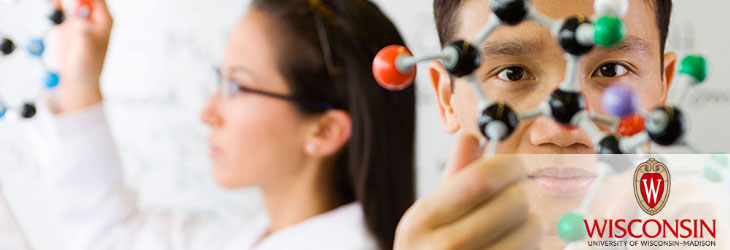Drug Discovery & Development

Small Molecule Catalysts of Oxidative Protein Folding
WARF: P150010US02
Inventors: Ronald Raines, John Lukesh
The Wisconsin Alumni Research Foundation (WARF) is seeking commercial partners interested in developing the best small molecule catalysts of protein-disulfide bond formation discovered to date.
Overview
Approximately 20 percent of human proteins – including many of high pharmaceutical relevance – are believed to contain disulfide bonds critical for proper structure and function. However, producing these proteins by recombinant DNA technology often leads to misfolded aggregates that must be denatured or otherwise treated to ensure proper structure.
Because this issue is of significant scientific and commercial interest, systems have been designed to study protein folding. It is known that forming proper disulfide bonds is a slow process, especially for proteins that contain cysteine residues. In human cells, the process is catalyzed by an enzyme called protein disulfide isomerase (PDI).
Adding PDI accelerates the process in vitro but on a larger manufacturing scale is impractical due to high cost and instability. Accordingly, the development of synthetic PDI mimics remains a high priority.
Because this issue is of significant scientific and commercial interest, systems have been designed to study protein folding. It is known that forming proper disulfide bonds is a slow process, especially for proteins that contain cysteine residues. In human cells, the process is catalyzed by an enzyme called protein disulfide isomerase (PDI).
Adding PDI accelerates the process in vitro but on a larger manufacturing scale is impractical due to high cost and instability. Accordingly, the development of synthetic PDI mimics remains a high priority.
The Invention
UW–Madison researchers have synthesized novel catalysts for use in the production of high value recombinant proteins including antibodies and other biologics. The small molecules contain binding features that mimic PDI and are nearly optimal for catalyzing disulfide bond formation. Namely, pendant “R” groups provide affinity for the hydrophobic substrate (unfolded protein) but not the product (folded protein), enabling the catalysts to operate like a true enzyme.
The novel catalysts and method can be used in vivo or in vitro.
The novel catalysts and method can be used in vivo or in vitro.
Applications
- Industrial production of therapeutic proteins containing disulfide bonds, such as insulin, human growth hormone and monoclonal antibodies
- Biomedical research tool
Key Benefits
- Demonstrated improvements over known catalysts
- Likely to increases the yield and speed of protein production
- Potential for best-in-class performance
Stage of Development
These novel compounds have shown improvements in disulfide bond formation and isomerization over known catalysts.
Tech Fields
For current licensing status, please contact Jennifer Gottwald at [javascript protected email address] or 608-960-9854